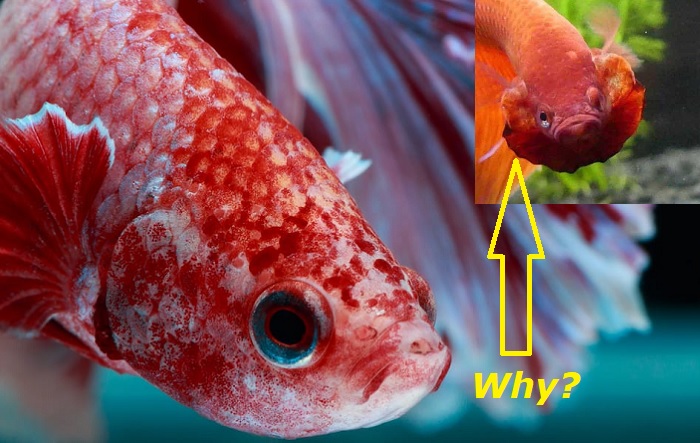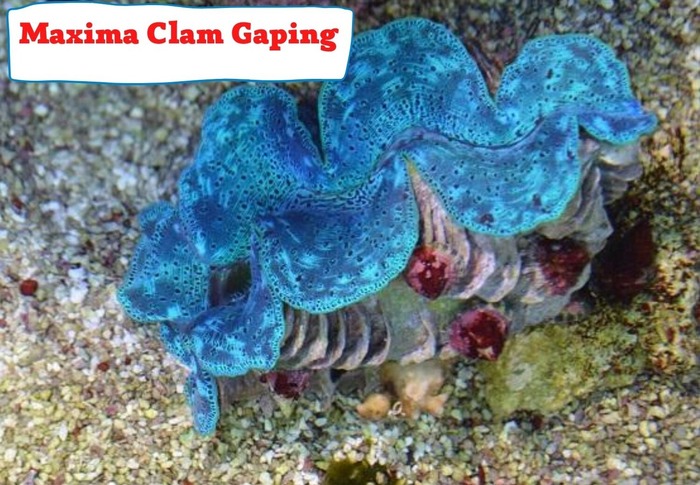Worrying about your pet is inevitable, especially when you notice unusual behavioral patterns. One of such is your Betta puffing up. As an amateur aquarist, this can make you panic and look around for possible causes.
But have you never thought about the causes for Betta fish puffing up?

This article discusses the possible causes for Betta fish puffing up and some solutions to make your pet’s living conditions more favorable.
What does it mean for Betta Fish to Puff Up?
Betta fish behavior of puffing up happens when your fish flares its gill flaps to make itself look bigger than its usual size. This puffing behavior is a response to stimuli in the fish’s natural environment.
If your fish puffs up, it will be best to find the possible causes for this response so that you can fix it before things get worse.
Reasons Betta Fish Puff Up
Invasion of privacy is the main reason Bettas flare their gills. A Betta is territorial by nature and acts aggressively toward intruders to protect their space. Hence, it is instinct to always protect their territory by puffing up to make them look bigger and tougher.
Keeping them in a confined tank leaves no path for escape and can lead to the death of the disadvantaged party.
New Environment
A new betta to its tank will conceal itself or attack anything it considers as a threat. This pattern will probably continue until it becomes comfortable in its new home.
This adjustment period often takes about two weeks.
Considers You a Threat
Bettas don’t have a very good sight compared to humans. This lack of clarity can sometimes make them perceive you as a threat. Hence, they will puff up at you to intimidate you even when you’ve come to rearrange their tank or feed them.
Its Reflection
Bettas, especially the males, are usually territorial and can fight each other to death for this reason.
Therefore, when male Bettas see their reflection in the aquarium’s glass walls, they confuse it for other males and puff up at the reflection.
You will notice this when you see it flare its gills on the spot at the glass for a long. It is puffing up because it feels threatened by its reflection which it thinks is another Betta.
Seeking Your Attention
A fish puffing up is often related to aggression, but this is not always the case. While most bettas will puff up at you for your attention, others will puff up for your admiration.
This means your fish is comfortable, happy, and excited to see you.
You’ll identify that this gesture is for you if your fish follows you. As an owner, this is a proud moment for you; enjoy it.
It is Exercising
Before progressing into panic mode, ensure you know why your Betta is puffing up. It can puff up when bored or when it feels like stretching some muscles. Once you notice this behavior in your fish, pause and study it for a couple of minutes before reaching a conclusion.
Flirting/Pre-Spawning Behavior
Flaring the gills is also a way to show dominance in the tank. Male Bettas flare to impress females and woo them for spawning.
A male and female in the same tank puffing up at each other is similar to humans flirting. A recognizable factor is if you notice that the male has built a bubble nest in the tank. This is usually no cause for alarm.
Is Puffing Up Good or Bad for Betta Fish?
There are many reasons for Betta fish puffing up. However, regardless of the reason, frequent puffing up is bad for your fish because it results in burnout when done constantly.
In most cases, puffing up is an aggressive answer to external stimuli. It is an aggressive response to drive an intruder away from its territory.
When Betta fish puff up, it means they are stretching and indulging in a workout-like pattern similar to you hitting the gym daily. The same way your joint and body aches from this constant work-out is similar to your fish’s feeling of exhaustion after this vigorous exercise (puffing up).
This is why you want to reduce the chances of your Betta fish puffing up too frequently.
What to do to Keep Your Betta Fish from Puffing Up too frequently?
1) Give Your Fish Time to Adapt
To ensure a smooth transition, ensure that you put your fish in a clean aquarium with the right water parameters (generally, Bettas need a pH range of about 6.8 to 7.5, ammonia at 0 ppm, nitrates below 20 ppm, and a temperature range of 76°f – 85°f to thrive).
Usually, they become anxious and stressed when not given enough time to adjust to their new habitat.
2) Visit Less
Visit your new Betta less to help it become slowly accustomed to you. Give your fish a breathing space and only come around when necessary. Allow your Betta to figure things by itself, and don’t bug it by hanging around for too long.
3) Don’t Keep Two Males Together
You can home multiple female Bettas, but this is not the case for the males. Males constantly fight for territories, so keeping just one male per tank is best.
On the other hand, it is preferable to keep one male with multiple females. However, keep an eye on them and be ready to separate if there’s a chance of injuring one another.
You also want to avoid overpopulation in the tank. This will make for sufficient room in the tank and reduce the need for your Betta to show other tank mates who the boss is.
4) Gentle Clean Up
It is important to maintain proper hygiene for your fish. Its hostile attitude should not stop the cleaning routine. Clean the tank when you should, and be careful when moving things around.
Gently vacuum the gravel but let your fish be. In time, curiosity and your constant gentleness will make it approach you and stop considering you a threat.
5) Remove Chances of Reflections
There will be reflections if you have a bright-lit aquarium in a dimly lit part of the room. The best way out of this is to ensure zero reflection by regulating the lighting in the room.
Also, you can remove any shiny object in the surroundings to stop the mirror image.
Another safe way to do this is by fixing sticky papers to cover the tank’s walls except for the front.
Which Gender of Betta Fish Puffs Up?
Note that both the male and female betta fish puff up, and they do so for a good reason. Both genders don’t have the same level of aggression. Male Bettas are more aggressive than females. It is best to pay attention whenever you notice this behavior in either sex.
Male betta fish puff up, and they do it super aggressively compared to the females. These males puff up, trying to protect their territory from intruders. They do this to make their opponent intimidated enough to back down.
On the other hand, females are semi-aggressive when they display this behavior. Usually, female Betta puffs up at each other to show sorority. When you keep males together, you need to be on the watch out as they fight with each other for territory and mating rights.
It is no problem to keep females together as long as you provide a spacious habitat with lots of thick planting and hiding spots to help them have an alone time when they need it.
However, staying vigilant when you have multiple betta fish is important to prevent bullying and fights.
Do Tank Mates Make Bettas Puff up?
There is an important reason Bettas are called fighter fish; they are aggressive, and they fight any other fish they perceive as a threat.
You want to be very picky when choosing tank mates because it’s not just the males that are aggressive but the females too. The thumb rule for choosing Betta tank mates is to avoid choosing any fish that looks like a Betta fish. Avoid fish with long glowy wings and vibrant colors.
If you choose a tank mate with vibrant colors and long flowy wings, your Betta fish will confuse it for another Betta. It will show aggression by first puffing up, and the fight for dominance will ensue in a few minutes.
It is best to find a non-aggressive, dull, mono-color, and short-finned bottom-dweller species as tank mates for your Bettas if you want to reduce the puffing up.
Some of the best options include:
- Small Cory Species
- Fedder Guppy
- Harlequin Rasboras
- Glass catfish
- Black Molly
- Platy
- White cloud
Final Thoughts
Ideally, your Bettas should only flare their fins when they are showing off their colors, spawning, or learning their new tank.
You want to avoid unnecessary puffing up by choosing the right tank mates, letting them figure things out themselves, and cleaning the tank gently. This will ensure that your Bettas do not become stressed and tire out from the constant puffing up.
- Snail Mantle Collapse – Here’s What Every Pet Owner Should Know - April 2, 2023
- Algaefix Killed My Fish – What Have I Done Wrong? - March 2, 2023
- How Long Can Live Rock Be Out of Water? And What Will Happen Then? - February 2, 2023




